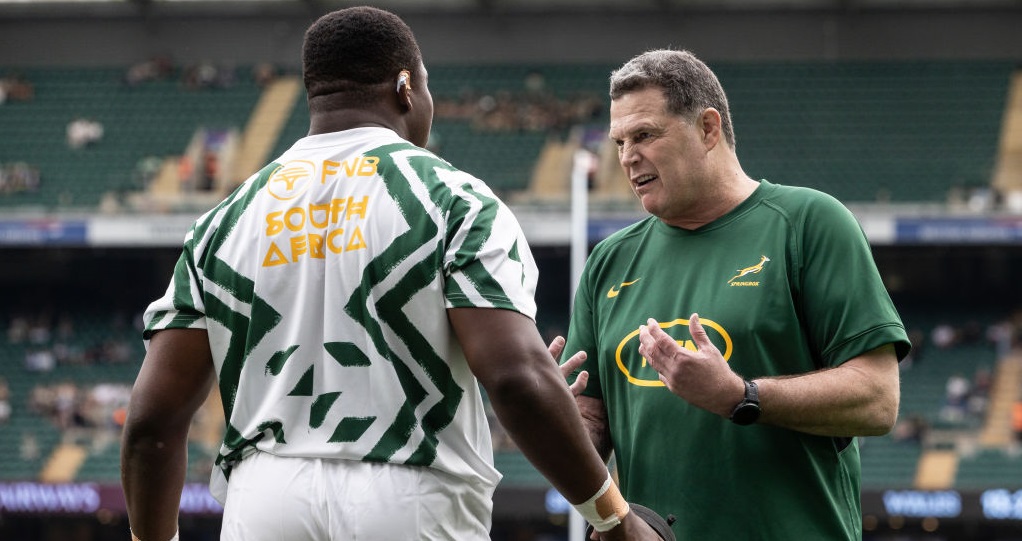Rassie Erasmus on what it takes to make Bok selection

When Springbok coach Rassie Erasmus announced the squad for the Ireland series, the usual chorus of displeasure arose from supporters.
The Bulls reached the United Rugby Championship Final and a host of their players certainly put up their hands for national selection.
Questions were raised around the omission of players like Siya Masuku, Elrigh Louw, Wilco Louw, Jean-Luc du Preez, and Ruben van Heerden to name but a few.
While these players were stars for their franchises, their absence in the Bok squad merely indicated the depth of talent in South Africa.
This week Erasmus meticulously explained how the Elite Player Development system in the country works.
He revealed that it prepares players for the next level of competition and players who did not form part of the EPD, lagged.
Erasmus was asked how the current form of players is tracked and what the Bok selectors look at.
“There are guys that we have put time and effort into through our EPD system, not just financially but IP wise, as Under-20 players under Bafana Nhleko and Louis Koen, our performance manager,” Erasmus said.
“I don’t want to sound wise or say I know all the answers.
“I am just saying current form is when you are playing against a team and you play brilliantly, you must take into account who you are playing against,” he explained.
“So teams that play in the European Cup play against much better opposition, compared to teams that play in the Challenge Cup.
“It is a fact, people must just understand that.
“For a team to win the Challenge Cup [the Sharks], it is fantastic because they struggled in the URC.
“The small things we track are your work rate, tackle efficiency, clean-out technique, and passing skills.
“People that look at stats, it’s easy, and I am not saying it is wrong.
“They look at how many kicks were over, how many tries were scored, and how many metres were made.
“But those stats are the result of other hard work of fundamentals, of cleaning out at the breakdown, of scrumming well, of knowing your calls as a flyhalf,” he explained.

Asked about the plans with Sharks flyhalf Masuku, who had an incredible season and looked earmarked for higher honours, Erasmus explained the process that needs to be followed.
“So referring to a guy like Siya Masuku.
“Jordan [Hendrikse] is one of those players who wasn’t always fully in the EPD system and you could just see him struggle.
“But he was part of the EPD system at stages.
“You could see Sacha [Feinberg-Mngomezulu] just slotting in because the Under-20s had the same gameplan.
“So Siya is definitely not old, 27, with the next World Cup he will be 32.
“But we must give him more time to settle, to get more used to the Springboks way of doing things.
“When we are in Durban, we get him into the mix, have him train with us.
“We have no control over unions, where they play players.
“We have a PONI system, which is ‘Player Of National Interest’ to which we contribute money,” Erasmus said.
“When a player plays SA Schools and he goes to a province where he is in the Under-20 setup, hopefully, he makes the junior Springboks team and goes into the Academy.
“Even for a young guy we give a PONI contribution.
“Sometimes it’s R100 000 or R60 000, even R150 000.
“Then you get the big rollers, the guys who win World Cups who are playing for South Africa, we contribute a few million towards their salary,” the coach clarified.
“So sometimes I can understand that people are upset about Elrigh, Siya Masuku, Ruben, Wilco – but all of these boys, hopefully, if things go well against Ireland, can play against Portugal.”














































































CLEN?